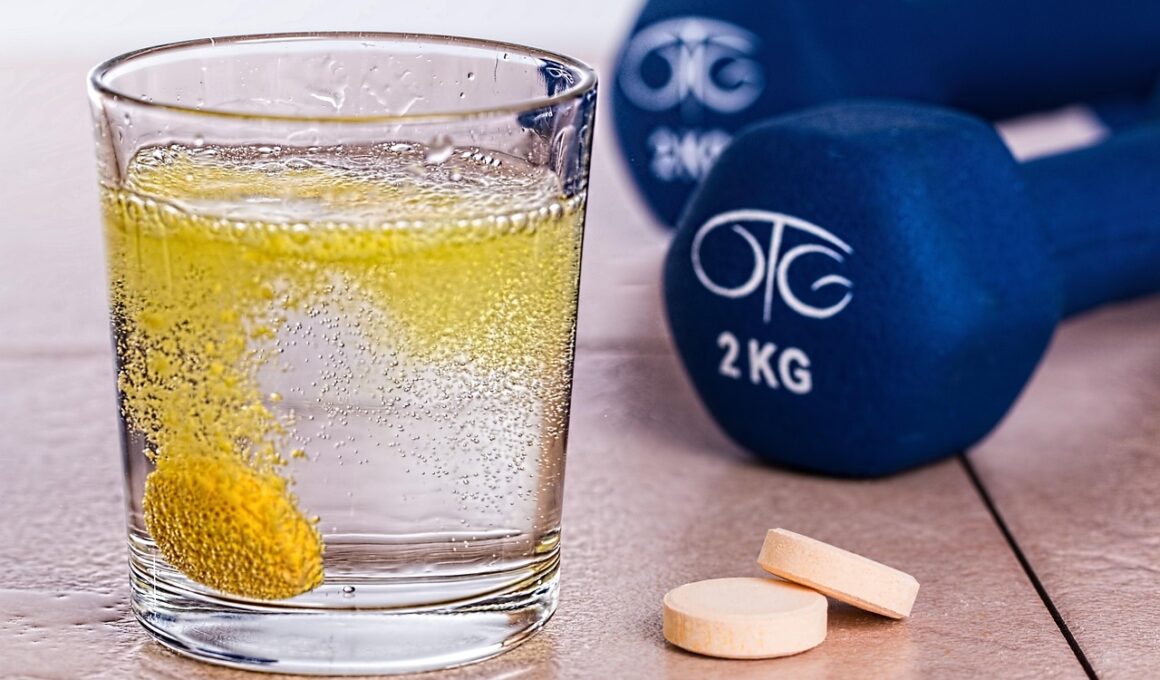Hydration and Electrolyte Supplements for Better Recovery
Hydration is crucial for effective post-workout recovery, playing a significant role in restoring balance. After intensive workouts, your body loses essential electrolytes through sweat, including sodium, potassium, and magnesium. Failure to replenish these can hinder muscle repair and increase fatigue. Electrolyte supplements can aid this process by supplying the critical minerals your body needs. Common forms of supplements include powders, tablets, or ready-to-drink solutions. Each has its benefits, catering to various preferences. Reliable hydration options can significantly improve recovery, ensuring muscle function is restored efficiently.
Knowing the ideal timing for electrolyte intake can enhance recovery. Studies suggest that consuming these supplements within 30 minutes post-exercise maximizes benefits. The combination of electrolytes with carbohydrates can promote faster glycogen replenishment, crucial for energy restoration. Some reputable electrolyte products also contain B vitamins, further assisting recovery. It’s vital to choose high-quality supplements to avoid added sugars or artificial ingredients. Reading labels helps you find beneficial products without unnecessary fillers. Emphasize natural ingredients that promote hydration. Your body will appreciate each step you take toward effective recovery.
Choosing the Right Electrolyte Supplement
Selecting an appropriate electrolyte supplement involves considering specific factors such as your workout intensity, duration, and sweat rate. Competitive athletes often require different needs compared to casual gym-goers. Examine supplements that cater to your specific activity level, ensuring adequate hydration is a priority. For endurance sports, products containing higher sodium levels can be beneficial. For shorter workouts, a balance of potassium and magnesium may suffice. Remember, personalizing your approach will yield the best recovery outcomes. Experiment with various brands to identify what works best for you.
Additionally, staying hydrated throughout the day is vital for optimal recovery. Adequate hydration before workouts can reduce the risk of cramps and dehydration during intense training. Establishing a water intake routine that suits your schedule encourages good practice. A general guideline is consuming half of your body weight in ounces daily, increased with workout intensity. You might also consider setting reminders to drink water consistently. Keep track using a water bottle with measurements or hydration apps to stay accountable. This consistency will complement your electrolyte supplementation, supporting overall recovery effectively.
The Role of Water in Recovery
Water acts as a foundational element in muscle recovery, influencing various bodily functions. Adequate hydration enhances circulation, aiding nutrient transport and waste removal. This directly impacts the efficiency of recovery processes. Inadequate water levels can lead to prolonged muscle soreness and reduced performance. Including hydrating foods in your diet can support hydration levels, such as watermelon, cucumbers, or oranges. These foods provide essential fluids and additional vitamins and minerals. Balancing water intake with solid foods ensures comprehensive hydration, fostering optimal recovery environments for muscle repair.
Incorporating hydration strategies into post-workout protocols is crucial. Consider establishing a routine that merges water and electrolyte consumption following exercises. For example, start with water to replenish lost fluids, then follow with electrolyte supplements to restore minerals. This combination guarantees a comprehensive approach to recovery. Evaluating your performance levels during workouts can guide future hydration strategies. Assessing how your body responds to different hydration methods helps you refine what works best over time. Consistency and awareness of hydration responses will benefit muscle recovery immensely.
Conclusion on Hydration Strategies
Finally, focus on hydration and electrolyte replenishment as essential components of your post-workout regimen. Hydrating effectively not only improves recovery but also enhances overall performance levels in subsequent workouts. By recognizing your specific needs, choosing appropriate supplements, and maintaining good hydration practices, you lay the groundwork for successful recovery. Encourage a holistic approach that incorporates proper nutrition, hydration, and rest. In doing so, you prepare your body for optimal functioning in future training sessions, enabling you to achieve all your fitness goals confidently.
Remember that adequate hydration is never a one-time effort; rather, it’s an ongoing challenge. Adapting your hydration strategy depending on activities, climate, and personal health will ensure that you maintain balance effectively. Listen to your body’s needs; it has crucial signals indicating when to hydrate. Combining these strategies within a consistent routine helps you achieve better recovery while enhancing exercise performance. Don’t underestimate the importance of hydration and electrolytes – they are vital allies in your fitness journey. Start implementing these practices today for greater recovery!


